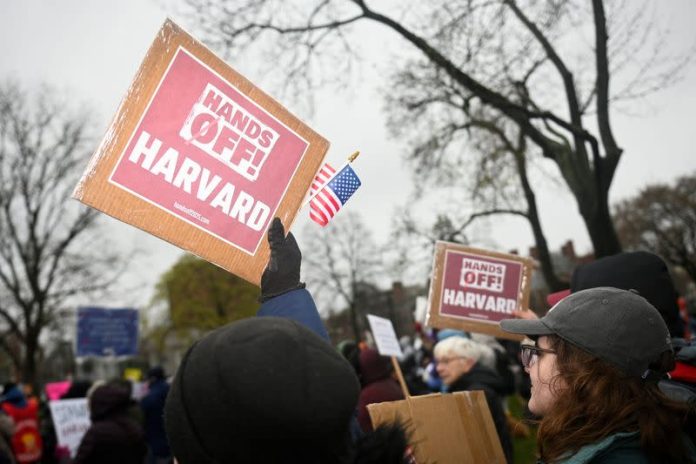The Trump administration has announced a freeze on $2.2 billion in multi-year grants and $60 million in contracts awarded to Harvard University, following the institution’s refusal to comply with new federal policy demands.
According to a CNN report, the decision was triggered after Harvard publicly stated it would not implement changes requested by the administration, including the elimination of diversity, equity, and inclusion (DEI) programmes, enforcement of bans on masks during campus protests, and reforms to merit-based hiring and admissions policies.
In a statement, Harvard President Alan M. Garber said, “The University will not surrender its independence or its constitutional rights.” He noted that the majority of the administration’s demands represented “direct governmental regulation of the intellectual conditions at Harvard.”
The demands, delivered via a federal task force, form part of a broader initiative aimed at combating antisemitism on university campuses. However, critics argue the measures encroach upon academic freedom and institutional autonomy.
Garber added, “No government – regardless of which party is in power – should dictate what private universities can teach, whom they can admit and hire, and which areas of study and inquiry they can pursue.”
The funding freeze could have significant implications, despite Harvard’s reported $53.2 billion endowment as of 2024. In response, the American Association of University Professors (AAUP), along with Harvard’s faculty chapter, has filed a lawsuit seeking an immediate temporary restraining order to block the funding cuts, CNN reported.
This marks one of the most direct rebukes of the White House by an elite institution, setting the stage for a legal and political battle over the federal government’s influence on higher education.


